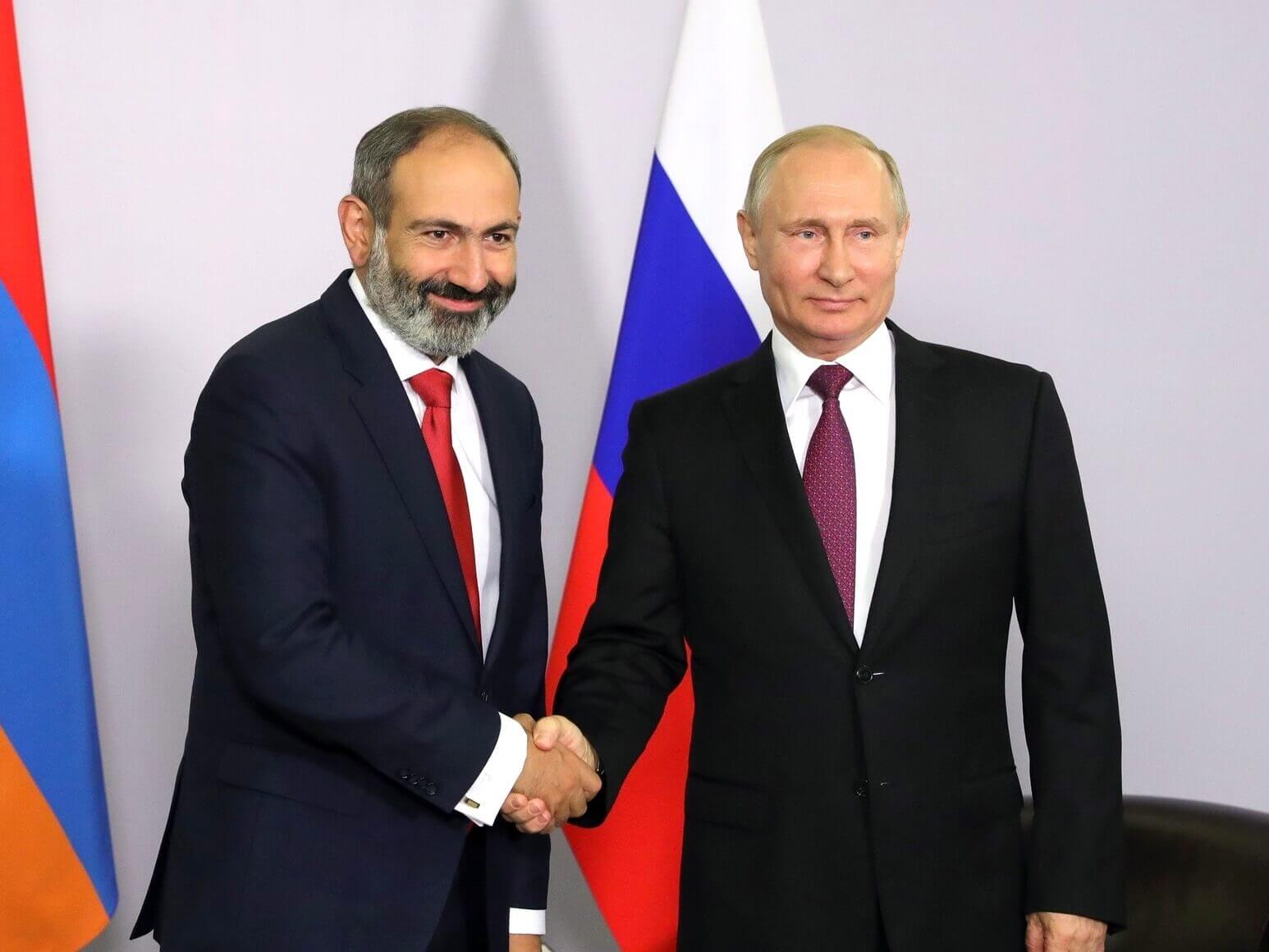Armenia has frozen its participation in the Russian-led Collective Security Treaty Organisation (CSTO) since the agreement has failed the country, PM Nikol Pashinyan said in an interview with France 24 on Thursday. The CSTO consists of six countries: Armenia, Belarus, Kazakhstan, Kyrgyzstan, Russia, and Tajikistan.
Armenia Freezes CSTO Participation
PM Pashinyan explained that Azerbaijan, with which Armenia has fought two wars in the last three decades, was not following the principles required to sign a long-term peace deal and was prepared to launch another attack.
“The Collective Security Treaty has not fulfilled its objectives as far as Armenia is concerned, particularly in 2021 and 2022. And we could not let that happen without taking notice,” Pashinyan stated. “We have now in practical terms frozen our participation in this treaty. As for what comes next, we shall have to see.”
Armenia has constantly accused the CSTO and Moscow of failing to meet its obligations. In January, Armen Grigoryan, Secretary of the Security Council of Armenia, declared that the republic “has no expectations” from the CSTO because it did not receive sufficient assistance in September 2022 during a “large-scale conflict.”
Pashinyan has recently expressed dissatisfaction with Armenia’s longstanding ties with Russia, adding that Yerevan could no longer rely on Moscow to meet its defence needs. Accordingly, its participation in the CSTO was being reviewed, he said. Moreover, Armenia has moved to diversify its defence imports and find new partners after Russia failed to provide ordered weaponry worth about $400 million. The failed arms agreement has exacerbated the deterioration of Russia-Armenia ties.
When asked about the Russian military base in Armenia, Pashinyan underlined that it is located in Armenia and is not part of the CSTO. “That’s an entirely different legal-contractual framework, and we haven’t had the occasion to address that framework.”
The Armenian PM has often accused Moscow of being an unreliable partner and attempted to strengthen security connections with other countries, including France, the US, and India.
⚡️#Armenia has suspended its participation in the Collective Security Treaty Organization (#CSTO), the Prime Minister of the country, Nikol #Pashinyan, said in an interview with France 24.
— KyivPost (@KyivPost) February 23, 2024
Pashinyan criticized Russia, "which dominates in the CSTO."
📷: AFP pic.twitter.com/qHc49EKHtQ
Differences in Armenia-Azerbaijan Peace Deal
Armenia and Azerbaijan continue to differ on certain fundamental aspects of a bilateral peace treaty, which they are currently discussing, a senior Armenian official said on Thursday.
In January, Azerbaijani President Ilham Aliyev demanded the return of enclaves and border villages under Armenian control since the First Karabakh War three decades ago. Pashinyan seemed to support the notion of exchanging enclaves, with a “mutually agreed map” as part of the process, but warned that if Azerbaijan requested the return of eight villages, Armenia would “raise the issue of 32.”
Additionally, PM Pashinyan said that President Aliyev’s statements, which Armenia interpreted as claiming large portions of Armenian territory, had harmed prospects for reaching a long-term peace agreement.
“If the principles of territorial integrity and inviolability of borders are not recognised by Azerbaijan, it is simply not possible,” he said in an interview. “Azerbaijan is using the situation to feed its rhetoric. That leads one to think that Azerbaijan is getting ready for a new attack on Armenia.”
India, France Emerging as Partners for Armenia
India and France have emerged as key partners for Armenia. In October, French Foreign Minister Catherine Colonna, during her visit to Armenia’s capital, Yerevan, said, “France has given its consent to sign a future contract with Armenia, which will enable the provision of military equipment to Armenia so that Armenia can ensure its defence; it is clear that I cannot elaborate on this issue for now.”
In one of the agreements signed between France and Armenia, the latter is reportedly set to purchase three air defence radar systems from Thales, a French defence company. The two parties also signed a “letter of intent” for the future delivery of Mistral short-range surface-to-air missiles.
Meanwhile, in 2022, India signed an agreement worth $250 million to equip Armenia with PINAKA multi-barrel rocket launchers (MBRL), anti-tank munitions, and ammunition; this was viewed as New Delhi’s intervention in the Armenia-Azerbaijan conflict. This was also India’s first export of PINAKA.

